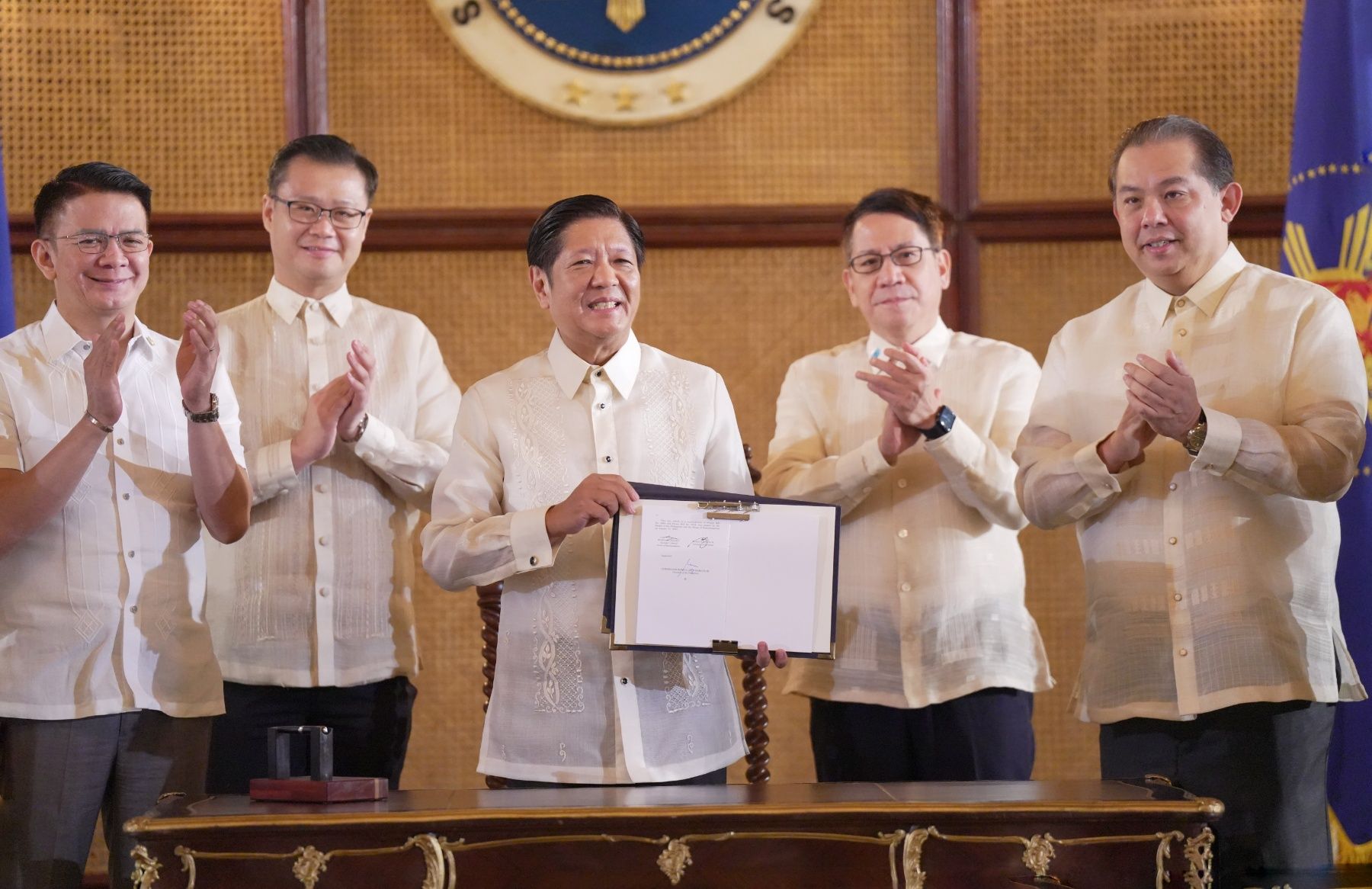ARAL Law to ensure no student is left behind, says Romualdez
At A Glance
- House Speaker Martin Romualdez has hailed the newly-signed Academic Recovery and Accessible Learning (ARAL) Law, saying its mandate ensures that students who are struggling in their academics will not be left behind.
 (From left to right) Senate President Francis "Chiz" Escudero, Senator Sherwin Gatchalian, President Ferdinand "Bongbong" Marcos Jr., Pasig City lone district Rep. Roman Romulo, and House Speaker Martin Romualdez (Speaker's Office)
(From left to right) Senate President Francis "Chiz" Escudero, Senator Sherwin Gatchalian, President Ferdinand "Bongbong" Marcos Jr., Pasig City lone district Rep. Roman Romulo, and House Speaker Martin Romualdez (Speaker's Office)
House Speaker Martin Romualdez has hailed the newly-signed Academic Recovery and Accessible Learning (ARAL) Law, saying its mandate ensures that students who are struggling in their academics will not be left behind.
“The law is consistent with the economic development mantra of the Marcos administration that calls for giving every Filipino the opportunity to improve so that he catches up with the rest of our population in terms of making life better for themselves,” Romualdez said in a statement.
President Marcos signed into law Republic Act (RA) No. 12028, which embodies the ARAL program, during a ceremonial signing in Malacañang Palace on Friday morning, Oct. 18.
Romualdez, leader of the 300-plus strong House of Representatives, said this law would provide a national intervention mechanism for students lagging behind in their lessons, particularly in reading, mathematics, and science.
“It seeks to address issues on learning difficulties of basic education learners and provide solutions based on assessments by DepEd (Department of Education) personnel,” he added.
The ARAL program is particularly intended for students who have returned or are returning after a hiatus, are below the minimum proficiency levels in reading, mathematics, and science, and those who fail examinations during the school year.
Under the law, students who meet the minimum proficiency levels may be allowed to enroll in ARAL supplemental classes during the summer break.
Teachers, para-teachers, and pre-service teachers may be enlisted as tutors, provided that teachers shall not be tutors of their own learners.
To ensure the program’s accessibility, the tutorial lessons will be conducted in three flexible delivery modes: face-to-face tutorials, online tutorials, or blended learning.
Solution to pandemic-related learning losses
Pasig City lone district Rep. Roman Romulo, the primary author and sponsor of the measure, says the ARAL program is set to lead the government’s efforts in addressing the country’s educational challenges, which were worsened by the Covid-19 pandemic.
Earlier this year, President Marcos expressed dismay over the 2023 findings by the Program for International Student Assessment (PISA), which reported that students in the Philippines are among the world’s weakest in reading, math, and science.
Experts have lamented this development, noting that the country barely progressed since it joined PISA in 2018, with most of the blame placed on the slow recovery following the pandemic.
However, with the renewed emphasis on helping struggling students in reading, math, and science, Romulo said the ARAL law will overall improve the competencies of learners. He said this will build a “solid foundation in literacy and numeracy”.
"Gusto natin, as much as possible, kapag may nakita tayong estudyanteng nahihirapan, mag-intervene na tayo agad. Huwag na nating hintayin hanggang matapos ang school year,” the lawmaker added.
(We want, as much as possible, to intervene immediately when we see a student struggling. Let's not wait until the end of the school year.)
Compensation for teachers
Romulo further said that teachers have already been helping their students improve their studies out of their own initiative.
“Through the ARAL Program, we are institutionalizing these efforts, ensuring that the instruction is well-structured, and that our teachers, para-teachers, pre-teachers, and the other competent and qualified individuals as determined by the Department, are adequately compensated,” he said.
Under RA No. 12028, teachers who take on tutoring roles shall be compensated based on existing DepEd and Department of Budget and Management (DBM) guidelines, provided they have completed six hours of classroom teaching
In the case of para-teachers or learning aides, they shall be paid from the annual budget of DepEd or the special education fund of local government units (LGUs) where the learners’ schools are located.
Meanwhile, tutoring services by pre-service teachers will count as relevant teaching experience when they apply for plantilla positions at DepEd.